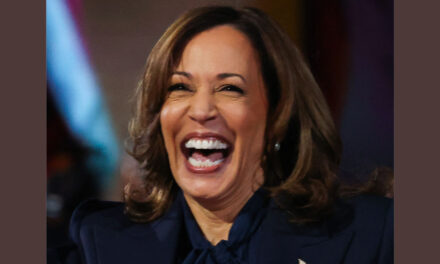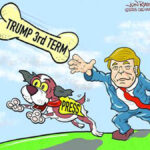
FBI Agents in Cahoots with Democratic Party on Clinton's Email Investigation?
The plot thickens. Apparently, a senior State Department official repeatedly pressured the FBI to change the classification of some of the “top secret” emails found on Hillary Clinton’s private server.
Allegedly this was discovered from the briefing on the new FBI interviews and summaries that were provided late Friday to the House Government Oversight and Intelligence Committees.
The committees cited the Freedom of Information Act to get these other documents released.
So, what do these summaries contain?
“This is a flashing red light of potential criminality,” said Jason Chaffetz (R-UT,) House Oversight and Government Reform Committee Chairman who was briefed on the FBI interviews to Fox News.
From what he has seen so far, he said “there was an alleged quid pro quo” between Undersecretary for Management Patrick Kennedy and the FBI “over at least one classified email.”
Supposedly, the FBI was offering incentives to alter classifications, like” additional slots for the FBI at missions overseas was discussed,” said Chaffetz.
Kennedy has formerly denied the allegations that he applied any pressure on subordinates to keep the classified emails hidden from Congress and the US public.
Although Chaffetz has yet to read the entire summaries, his briefings have already indicated that at least “four hearings” may be needed. So far, he seems frustrated and disappointed in the information revealed in the briefings.
“Both myself and Chairman Devin Nunes of the House Permanent Select Committee on Intelligence are infuriated by what we have heard,” said Chaffetz.
On October 5th, the chairman and others wrote to the DOJ about the agreement to limit the investigation of Clinton’s private email server.
“We write to express our concerns about the process by which Congress was allowed to view the Wilkinson letters, that the letters inappropriately restrict the scope of the FBI’s investigation, and that the FBI inexplicably agreed to destroy the laptops knowing that the contents were the subject of Congressional subpoenas and preservation letters…
These limitations would necessarily have excluded, for example, any emails from Cheryl Mills to Paul Combetta in late 2014 or early 2015 directing the destruction or concealment of federal records. Similarly, these limitations would have excluded any email sent or received by Secretary Clinton if it was not sent or received by one of the four email addresses listed, or the email address was altered…
“Further, the Wilkinson letters memorialized the FBI’s agreement to destroy the laptops. This is simply astonishing given the likelihood that evidence on the laptops would be of interest to congressional investigators….
The Wilkinson letters raise serious questions about why DOJ would consent to such substantial limitations on the scope of its investigation, and how Director Comey’s statements on the scope of the investigation comport with the reality of what the FBI was permitted to investigate…” written by Chaffetz, Senate Judiciary Committee Chairman Chuck Grassley (R-IA), House Judiciary Committee Chairman Bob Goodlatte (R-VA), and House Permanent Select Committee on Intelligence Chairman Devin Nunes (R-CA.)
The FBI has been reluctant to provide the investigation documents, especially the last batch.
“Left to their own devices the FBI would never have provided these [records] to Congress and waited until the last minute. This is the third batch because [the FBI] didn’t think they were relevant,” said Chaffetz to Fox News.
The FBI is expected to release the rest of the investigation files by Monday or sometime next week, but the department has already released a statement defending the senior State Department official’s actions.
“Prior to the initiation of the FBI’s investigation of former Secretary Clinton’s personal email server, the FBI was asked to review and make classification determinations on FBI emails and information which were being produced by the State Department pursuant to FOIA. The FBI determined that one such email was classified at the Secret level. A senior State Department official requested the FBI re-review that email to determine whether it was in fact classified or whether it might be protected from release under a different FOIA exemption. A now-retired FBI official, who was not part of the subsequent Clinton investigation, told the State Department official that they would look into the matter. Having been previously unsuccessful in attempts to speak with the senior State official, during the same conversation, the FBI official asked the State Department official if they would address a pending, unaddressed FBI request for space for additional FBI employees assigned abroad. Following the call, the FBI official consulted with a senior FBI executive responsible for determining the classification of the material and determined the email was in fact appropriately classified at the Secret level. The FBI official subsequently told the senior State official that the email was appropriately classified at the Secret level and that the FBI would not change the classification of the email. The classification of the email was not changed, and it remains classified today. Although there was never a quid pro quo, these allegations were nonetheless referred to the appropriate officials for review,” said a FBI spokesman.
Author’s note: We will have to see what these summaries say, but this smells like a cover-up. How can we even trust that these investigation documents haven’t been altered?
























Trump is probably the most fit President we have had in the White House for a President at any age.…
Cognitive and physical health. OMG. Elections have consequences. It’s proven that Trump is smarter than Frank Dunger. Any in agreement?…
He said, she said so who are we going to believe. Larry you cast a very dim light on the…
You asswipes aren’t good enough to give Trump a rim job. But speaking of Trump, he passed his physical examination…
Frank and Mike covered the main points. Larry, of what use is backing someone's economic policy in part when the…